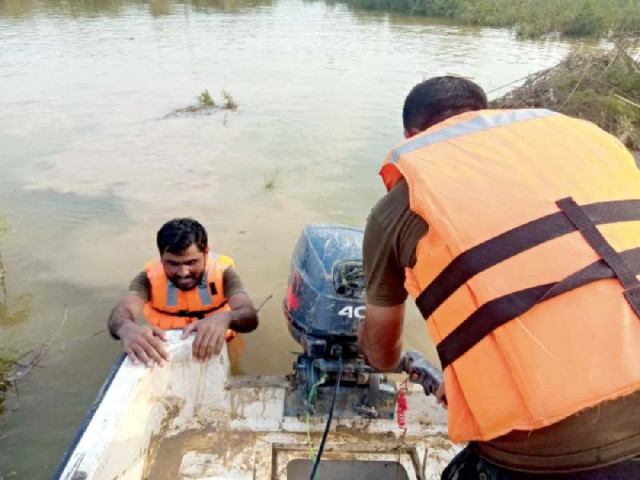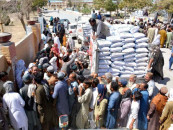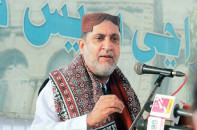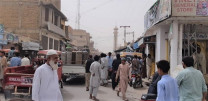Floods expose vulnerabilities of people
Province reeling from some of the worst flooding in years

Balochistan was devastated by flash floods that began in June and have since killed more than 500 people, while close to 50,000 houses have been either been damaged or flattened so far, displacing thousands of people, according to BBC report.
The monsoons first hit Pakistan in the middle of June. The country’s National Disaster Management Authority (NDMA) said they brought 133% more rainfall than the annual average, which has not happened in years.
The downpour triggered floods which wreaked havoc across provinces, swallowing up entire villages, roads and bridges. For days, people were trapped, landlocked with little help, the report added, quoting local media reports.
One of the devastated villages is Sadori, the report said, where 22-year-old Muhammad Aslam and a few others have returned to see if they can rebuild their life. But it’s a grim sight that greets them. Nothing can be saved - even their farm land has been turned into a muddy swamp.
“I lost everything,” Aslam told BBC, sharing his worries about more rains in the coming weeks. He has moved his family to a temporary shelter on higher ground. Authorities set up the tented accommodation as part of relief efforts.
In Balochistan alone, more than 18,000 homes have either been partially or completely destroyed. People in Sadori say they do not know how much time they have until the next disaster. Their fears are not without merit.
The Pakistan Meteorological Department (PMD) has warned of a new monsoon spell, expected to bring strong winds and heavy rains to some parts of the country. This comes just as water levels were beginning to subside, and the water level in many rivers was starting to go back to normal.
And the floods have already severely hit livelihoods in a country where half the population still depends on agriculture -- either selling livestock or farming. Muhammad Saleh – a cotton and wheat farmer – said that in a matter of days he lost a year’s worth of harvest to the deluge.
The 40-year-old father of two lived on a compound with his brother and other family members – 27 in total. The rest of his family have moved to a temporary shelter until it’s safe to return home. Locals told the BBC that the shelters often run out of food, and the rations are meagre.
Local government agencies have opened camps in flood-hit regions with the help of relief organisations, and are working to help relocate families. However, authorities have admitted that relief efforts have been slow, but they say it’s not a matter of will but of resources.
Saleh said he is looking for temporary work as a labourer but with most farm land in the area destroyed, work is difficult to come by. “Winter is coming and we don’t have anything – not even bedding. I do not know how will we live or keep the children warm.”
In another village in Lasbela district the community have gathered to pray with a family who’ve lost three people to the floods. “We found them the next morning – their bodies were stuck in a tree. It’s so painful for me to lose them this way,” said Ahmad, who lost his son, daughter-in-law and granddaughter.
Pakistan is among the countries most vulnerable to climate change despite contributing less than 1% of global emissions, according to the Climate Change Risk Index 2021 by NGO German Watch. Local weather experts have warned there are already signs of the climate crisis.
Published in The Express Tribune, August 11th, 2022.


















COMMENTS
Comments are moderated and generally will be posted if they are on-topic and not abusive.
For more information, please see our Comments FAQ